Keynote Speaker: 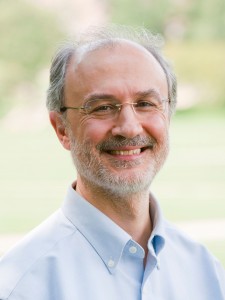 Ahmet T. Karamustafa, Professor of History at the University of Maryland, College Park
Ahmet T. Karamustafa, Professor of History at the University of Maryland, College Park
The study of the global history of Muslim identity, and indeed of Islamic piety as a whole, suffers from an overdose of normativity. This is due, in large part, to the lopsided nature of the relevant sources, the overwhelming portion of which were produced by Muslim specialists in religion – scholars as well as religious “virtuosi,” that is, saints, ascetics, would-be messiahs– often for the benefit of other specialists in Islam or the educated elite. Whether they addressed other specialists in Islam, the rest of the cultural elite or, rarely, the common folk (as in sermons, handbooks and popular hagiographies), the religious scholars and saints normally wrote not in the vernacular but in an acquired linguistic register of learning. Moreover, eschewing descriptive or affective modes of expression, they often spoke in idealistic and prescriptive tones. Not surprisingly, therefore, the texts they produced preserve only refracted images of actual religious practices and beliefs, whether of the cultural elite or of the common folk.
Yet, the historian of Muslim identity cannot afford to mistake the norms articulated by Muslim scholars and saints for the norms that actually informed the behavior of Muslims, elite and common folk alike, on the ground. The shape of vernacular Islam, enunciated and performed in the everyday language spoken by religious specialists and lay people alike, was distinctly different than the shape of normative Islam, generated and articulated exclusively by religious scholars and saints. It would, therefore, be impossible to recover all the different shades of Muslim identity from the historical record without placing the normative discourses of the religious specialists into their proper vernacular contexts and examining the tense but always creative relationship between the normative and the vernacular in particular regions and in particular time periods, indeed often in the souls and minds of individual historical actors, who had to negotiate the turbulent waters of everyday religious practice. Thus, the story of Muslim identity is not, and cannot be, confined to the analysis of Muslim learned normative discourses; that story does and should include the actual religious practice of the cultural elite and the discursive as well as performative practices of everyone who lived in the vernacular (including vernacular Arabic), which all need to be analyzed in conjunction with one another. It is, therefore, crucially important to recuperate the history of vernacular Islam as we try to understand the complex processes at work in the negotiation and renegotiation of Muslim identity in the present.
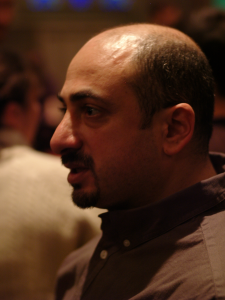 Concert Performance: Issa Boulos, Program Coordinator, Community Music and Arts Center at Harper College; Director, Chicago World Music Ensemble http://www.issaboulos.com/
Concert Performance: Issa Boulos, Program Coordinator, Community Music and Arts Center at Harper College; Director, Chicago World Music Ensemble http://www.issaboulos.com/
Issa Boulos serves as the Program Coordinator of the Community Music and Arts Center at Harper College at which he directs the Chicago World Music Ensemble. He founded the Issa Boulos Ensemble to perform original compositions. Boulos incorporates traditional instruments in innovative ways. He has composed music for orchestras, chamber groups, ensembles and traditional maqam ensembles. The Chicago Symphony, Qatar Philharmonic, Youth Symphony of Bremen, Athens Symphony, Palestine National Orchestra and Silk Road Ensemble have commissioned his compositions. He set original scores for numerous documentaries including the award-winning “Nice Bombs” and PBS’s “The New Americans.” He has performed and delivered concerts, workshops, master classes and lectures at American and international institutions and universities. As researcher, Boulos fosters understanding about world music. He received awards from the Illinois Arts Council, the A. J. Racy Fellowship for Studies in Ethnomusicology, and the Norwegian Fund for newly composed works. He was previously a lecturer at the University of Chicago and the Head of Music at the Qatar Music Academy.
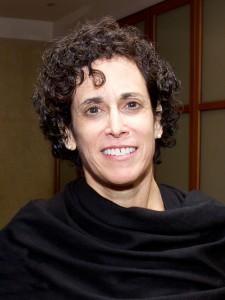 Presenters:
Presenters:
Beth Baron, Professor of History, City College of New York (CCNY); Director of the Middle East and Middle Eastern American Center, CUNY; President, Middle East Studies Association of North America https://www.ccny.cuny.edu/profiles/beth-baron
Christian Missionaries and Muslim Brothers
This presentation examines the contest between the two groups for the bodies and souls of young Egyptians in the early 20th century. Islamists mobilized against Protestant evangelicals and also mimicked them, developing their own social welfare networks and missionary wings.
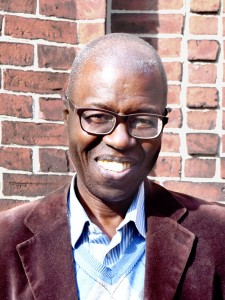
Souleymane Bachir Diagne, Professor of French and Philosophy, Columbia University http://www.columbia.edu/cu/french/department/fac_bios/diagne.htm
Islam in West Africa, around the figure of Cerno Bokar Tall
After a general presentation of the history of Islam in Africa, I will focus on the figure of Cerno Bokar Tall, the spritual master whom we know mainly through his biography written by Amadou Hampate Ba, his disciple. I will examine his teaching of pluralism, which I consider the expression of Islam in West Africa.
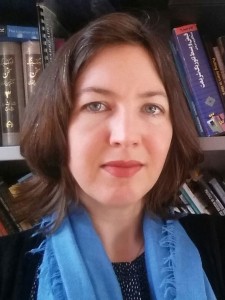 Kathleen Foody, Assistant Professor of International Studies, College of Charleston http://internationalstudies.cofc.edu/about-international-studies/faculty-staff/foody-kathleen.php
Kathleen Foody, Assistant Professor of International Studies, College of Charleston http://internationalstudies.cofc.edu/about-international-studies/faculty-staff/foody-kathleen.php
Marx and the Mosque: Considering Muslim Politics in the 1970s
Scholarship on Islamic political theory seesaws between a focus on liberal and radical Muslims. I argue that Iranian debates over the Iranian Ali Shariʿati and his legacy yield a more complicated field. Here, I locate Shariʿati in terms of Third Worldist activism during the 1960s and 1970s and analyze contemporary engagements with that legacy in light of Iranian politics and empire at large. I suggest these debates demonstrate the shortfalls in liberal analysis of Muslim political activism.
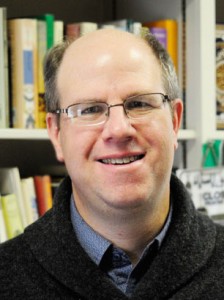 Peter Gottschalk, Professor of Religion, Wesleyan University http://pgottschalk.faculty.wesleyan.edu/
Peter Gottschalk, Professor of Religion, Wesleyan University http://pgottschalk.faculty.wesleyan.edu/
“Terms of Endearment & Antagonism: ‘Islam,’ ‘Muslim,’ and the Empirical Study of Religion”
While secular scholars and public commentators may attempt to describe the practices, thoughts, and sentiments that Muslims associate with “Islam,” the customary deployment of a singular term to describe their multiplicity helps elide the diversity and divergence that empirical scholarship should properly express. So deeply engrained are such essentialized views of a supposedly singular religion that, even when accompanied by generous disclaimers to the opposite, they can prevail in the minds of audiences to the exclusion of telling divergences from normative models that may, in fact, be the norm. This elision not only skews understanding of Muslim traditions’ complexities, it unwittingly aids – in particular contexts – unfairly critical portrayals of Muslims, which are used to justify discrimination and even violence. Meanwhile, “Islam” represents a highly valuable signifier for many Muslims; using it as a second-order term places outsiders in possible competition with practitioners for the “proper” defining of it. Instead – and in an effort to address this pressing public issue – empirical scholarship of religions should treat “Islam” as a first-order term and describe it only within the immediate context of its use by Muslims, relying on alternative and more specific terms instead.
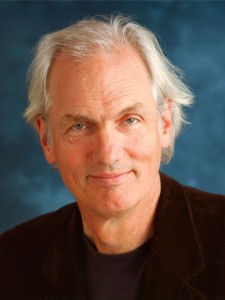 Webb Keane, George Herbert Mead Collegiate Professor of Anthropology, University of Michigan https://sites.lsa.umich.edu/webbkeane/
Webb Keane, George Herbert Mead Collegiate Professor of Anthropology, University of Michigan https://sites.lsa.umich.edu/webbkeane/
Semiotic Transgression: Indonesian Islam Defines Itself
What some have called to the ongoing Islamization of Indonesia has taken on new forms in the last generation. Much of the scholarly and journalistic attention to this process has focused on the politics of religion in the late colonial and post-independence state-making process, but there are other important dimensions to consider. This paper looks at two case studies of semiotic transgression, ways of using words or images that can be considered illicit or even dangerous. One case concerns the controversy surrounding the translation of the Qur’an into Indonesian by H.B. Jassin, a famous literary critic and editor. The other involves more recent debates over anti-pornography legislation. This paper analyzes and compares these cases in order to explore the changing relations between piety and public life in contemporary Indonesian Islam.
Aisha Khan, Associate Professor of Anthr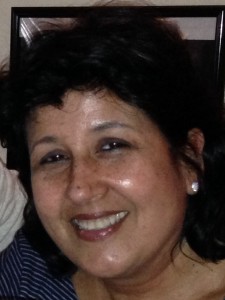 opology, New York University http://anthropology.as.nyu.edu/object/aishakhan.html
opology, New York University http://anthropology.as.nyu.edu/object/aishakhan.html
Islam in Haiti, ‘Land of Vodou’
Revolutionary San Domingue and its post-revolution incarnation, Haiti, have long been epitomized by the Atlantic religious tradition, Vodou. Yet Islam is also another crucial dimension of this history, whose presence in Haiti has been acknowledged in diverse ways over the centuries. Practitioners and observers both intertwine and distinguish Vodou and Islam as they contend with, on the one hand, the unruly demands of everyday life and, on the other hand, Enlightenment-derived and Euro-colonial enforced epistemological categories that stipulate homogeneity and mutual exclusivity. My presentation will consider some of the ways that local historiography has interpreted the relationship between Vodou and Islam, the dialogues between heterodoxy and orthodoxy, and the ways that contemporary Haitians’ represent the contribution of Islam and Vodou to Haitian identity.
Ruth Mas, Visiting Research Fellow, Berlin Graduate School Muslim Cultures and Societies, Freie Universitaet, Berlin http://fu-berlin.academia.edu/RuthMas
The Modesty of Theory in the Study of Islam
In an era where for many scholars of the Islamic tradition in the field of religious studies the production of critical knowledge is embattled and precarious, it is crucial to consider the links between theory and the politics of intellectual and critical exercise. There are detectably few subjects of study like that of Islam, Muslims and the Islamic tradition which demand with such instancy that they be thought unceasingly. What happens when, overcome by a desire to make a difference and to have some effect on the world, politics takes the place of intellectual work? Politics, politicking, lobbying, pandering, however global its structural aspects or however local its relational aspects, demands a sustained consideration of how beholden we are to power, its distribution, and the state. This also means scrutinising the differing qualities of our relations to politics itself. The stakes could not be any simpler nor could they be any less unyielding.
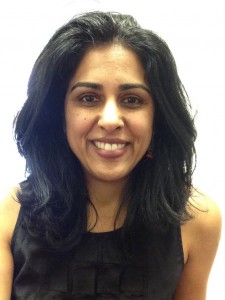 Teena Purohit, Associate Professor of Religion, Boston University http://www.bu.edu/religion/people/faculty/bios/teenapurohit/
Teena Purohit, Associate Professor of Religion, Boston University http://www.bu.edu/religion/people/faculty/bios/teenapurohit/
Tauhid and its Infractions: Modernist Muslim Definition-Making
Modernist Muslim thinkers of the twentieth century reinterpreted the idea of tauhid, God’s unity, to describe Muslim political unity and in turn, Muslim identity. This specific interpretation of tauhid served an ideological function that defined borders of Muslim religious identity. With Muhammad Abduh (Egypt) and Muhammad Iqbal (India) as the primary subjects of study, this paper examines the delimited contours of modernist definitions of tauhid, with specific attention to what practices, schools of thought, and groups were either occluded or deemed transgressive to this new ideology.
Save
Save
Save